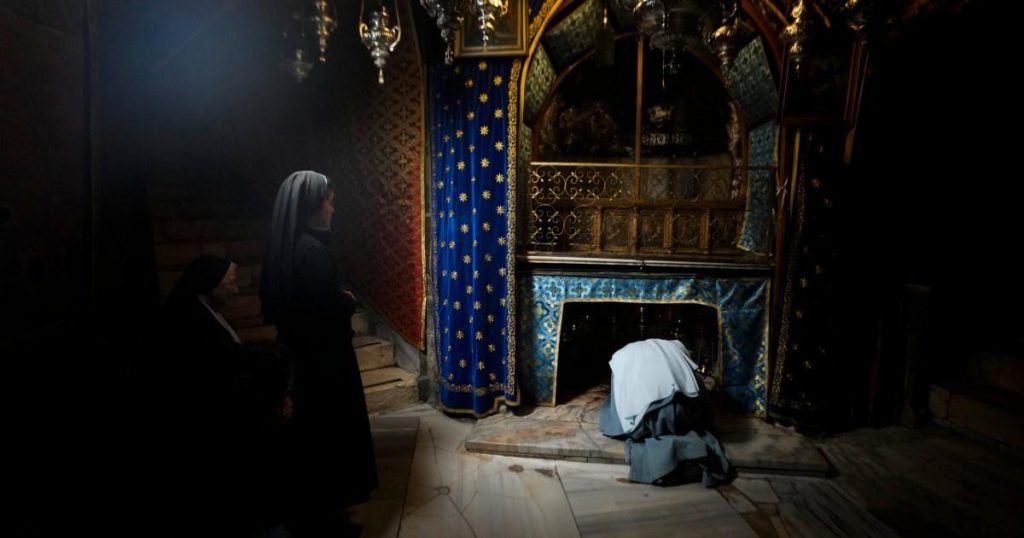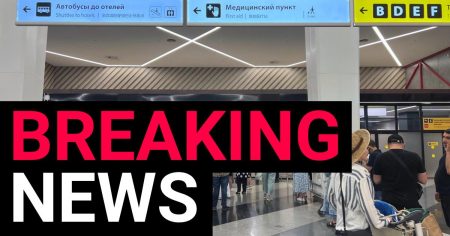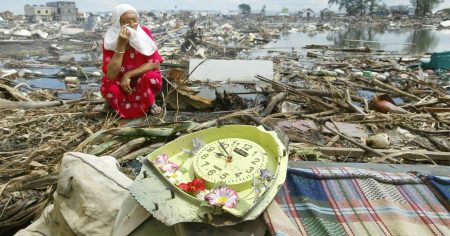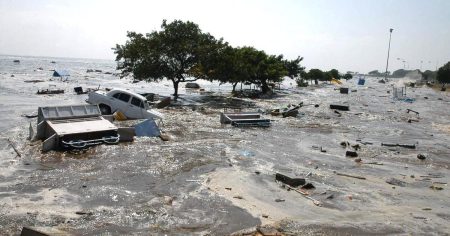Bethlehem, the revered birthplace of Jesus, observed its second consecutive Christmas under the somber shadow of the ongoing conflict in Gaza. The usual vibrant Christmas spirit was notably absent, with Manger Square, traditionally bustling with thousands of pilgrims and tourists, standing eerily empty. The customary Christmas tree and festive lights were conspicuously missing, replaced by security barriers erected by Palestinian forces near the Church of the Nativity, the very site believed to be where Jesus was born. The prevailing sentiment in Bethlehem was one of subdued hope, with Mayor Anton Salman expressing the city’s enduring message of peace while also imploring the world to intervene and alleviate the suffering of the Palestinian people. The war between Israel and Hamas, which erupted on October 7, 2023, has cast a long pall over Bethlehem and the surrounding region.
The economic impact of the conflict on Bethlehem has been devastating. Tourism, which constitutes approximately 70% of the town’s income, almost entirely generated during the Christmas season, has plummeted precipitously. Visitor numbers have dwindled from approximately two million in 2019 to a mere 100,000 in 2024, according to the Palestinian Tourism Ministry. This drastic decline has had a cascading effect on the local economy, with unemployment soaring to around 50%, compounding the hardships faced by the residents of Bethlehem. The pervasive atmosphere of uncertainty and fear has deterred both tourists and pilgrims, crippling the town’s primary source of revenue and exacerbating existing economic vulnerabilities.
Despite the subdued atmosphere and economic hardship, the spirit of Christmas flickered amidst the gloom. While the usual grand celebrations were absent, the Church of the Nativity was adorned with decorations, offering a glimmer of hope and resilience. Clergymen conducted the traditional Christian procession towards the church, reaffirming the enduring significance of the holy site. Latin Patriarch Pierbattista Pizzaballa, the highest-ranking Roman Catholic cleric in the Holy Land, expressed his hope for a brighter future, voicing the prayers of those suffering in Gaza and emphasizing the importance of perseverance. His pre-Christmas mass in Gaza City, where he witnessed firsthand the devastation and poverty wrought by the conflict, further underscored the resilience of the human spirit in the face of adversity.
The ongoing conflict, however, extends beyond Bethlehem and Gaza, casting a long shadow over the entire region. The surge in violence in the West Bank has resulted in a tragic loss of life, with over 800 Palestinians killed by Israeli fire and dozens of Israelis falling victim to militant attacks. Travel restrictions, including checkpoints and security measures, have severely hampered movement within the West Bank, adding to the challenges faced by residents. The sheer scale of destruction in Gaza is staggering, with over 45,000 Palestinians killed, the majority being women and children, and approximately 90% of the territory’s 2.3 million residents displaced. The conflict’s human cost is immense, leaving a trail of devastation and displacement in its wake.
The October 7 attack on southern Israel, orchestrated by Hamas-led militants, further intensified the conflict, resulting in the deaths of around 1,200 people, most of them civilians, and the capture of over 250 hostages. This attack marked a significant escalation in the ongoing conflict, deepening the divide and further complicating the prospects for peace. The complexities of the situation are further compounded by the diverse demographics of the Holy Land. While Bethlehem remains a significant center in Christian history, Christians comprise a small minority of the roughly 14 million people residing across the Holy Land, further highlighting the multifaceted nature of the conflict and the diverse communities affected by it.
The subdued Christmas in Bethlehem serves as a poignant reminder of the ongoing conflict’s profound impact on the lives of ordinary people. The absence of the usual festive cheer, replaced by an atmosphere of uncertainty and hardship, underscores the urgent need for a peaceful resolution. The dwindling tourism, soaring unemployment, and pervasive sense of insecurity highlight the economic and social consequences of the conflict. The resilience of the people of Bethlehem, clinging to hope amidst adversity, shines through the gloom, but their plight remains a stark reminder of the human cost of conflict and the urgent need for peace in the region. The ongoing conflict’s ripple effects continue to reverberate throughout the Holy Land, impacting various communities and fueling the cycle of violence.











